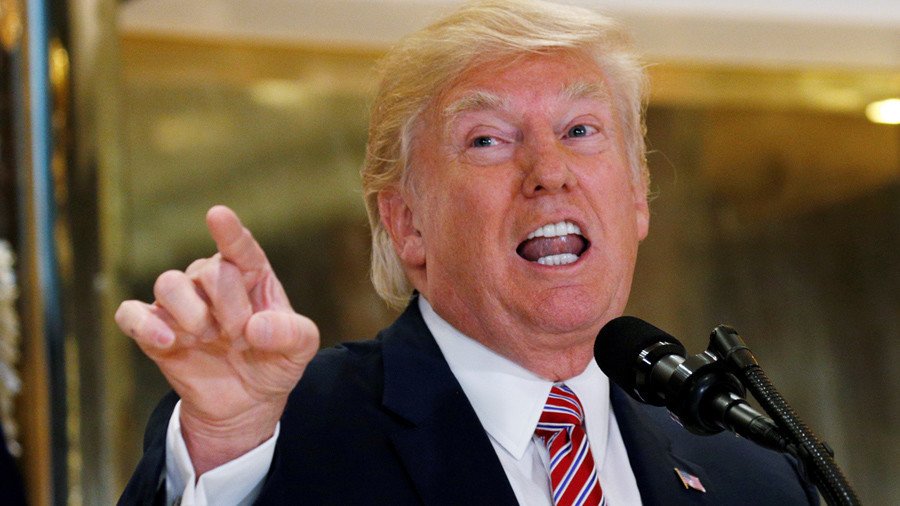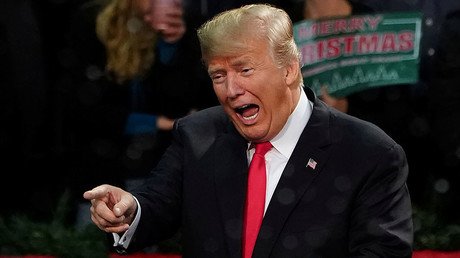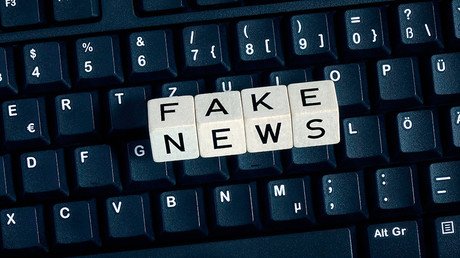Trump’s year of foreign policy: How to lose allies and alienate nations

The first year of Donald Trump’s presidency has been chaotic, to put it mildly – both domestically and for the world in general. And the world community should ask itself whether it was just a glitch in the system.
One can safely assume that the majority of world leaders don’t consider Trump the best president the US has had. His domestic troubles aside, he has managed to imperil US credibility in many parts of the world.
He scrapped the Trans-Pacific Partnership free trade agreement, which he believed was not good enough for America, and threatened similar pacts with Canada, Mexico and South Korea. He withdrew from the Paris climate accord, putting the self-interest of US business ahead of the global climate change threat. He disrupted the Middle East by recognizing Jerusalem as Israel’s capital and threatening to scrap a hard-won nuclear deal with Iran. And he is currently pursuing a North Korea policy apparently aimed at either a mass famine in the country or an all-out, possibly nuclear war on the peninsula.
More controversy than usual has been swirling around the White House, with Donald Trump losing his temper over a book accusing him of being an ignorant, TV-addicted narcissist. The bad news, though, is that he's not going away anytime soon. https://t.co/HBfDTYCLElpic.twitter.com/zsfv9GDQ2f
— SPIEGEL ONLINE English (@SPIEGEL_English) January 19, 2018
Those policies do not take into account Trump’s personal diplomatic style. The style with which he went after European NATO allies, berating them for not paying for the protection provided to them by US military machine. The style by which Trump tried to weasel out of the Obama-era refugee deal with Australia during his early days in office. The style in which he dismissed some of the world’s poorest nations, allegedly in highly offensive language.
We are unlikely to learn for sure what names Australia’s Malcolm Turnbull called the US president after that infamous conversation, or what was said by many other world leaders exposed to Trump’s art of the deal. But they may be along the same lines as the expressions that some of his subordinates allegedly used, as described in Michael Wolff’s scandalous book.
My new cover for Epoca magazine in #Brazil. "Dirty Bombs", #Trump and the Demagogues' War Against the Press. How Trump's labeling of the press as "fake news" on Twitter is being coopted and weaponized by dictators worldwide to destroy the press in their own countries. pic.twitter.com/qDllN6o73a
— Edel Rodriguez (@edelstudio) January 13, 2018
It’s hardly surprising that America’s global approval ratings are at their lowest level in a decade, according to a Gallup poll, worse than in the final years of George W Bush’s presidency. The greatest drops in approval came from traditional US allies, including Canada. And probably more significantly, the disapproval rating for American leadership in 2017 was 58 percent, up from 27 percent in 2016.
The world’s distrust puts in question whether Washington’s exceptionalism can be salvaged after the Trump presidency. America enjoyed free rein to topple foreign governments through subterfuge or outright military action, operate the dollar, decide on how global trade should work and much else besides on two presumptions. One – that its leadership was ultimately making the world a better place, regardless of the damage done in the process. And two – that it was an adequately competent leader.
I love the Trump illustration on the @TheEconomist front cover this month, and how well it reflects his presidency! pic.twitter.com/3hNi6HOdiV
— Adam Gatenby (@agatenby) January 14, 2018
Now the US has Donald Trump as its president, a person whose capacity to hold the office is vigorously questioned at home and whose actions abroad apparently made more than half of the world resent American leadership. The US establishment may tell itself that Trump got where he is through Russia’s machinations, and silence the dissident voices blaming an archaic and corrupt political system that protects an unjust and failing corporate economy. Americans loathing Trump may pray for the Robert Mueller investigation to come up with something actionable to impeach him or at least for his inner circle to find a way to insulate him from any real power.
This won’t change the fact that many people in the world doubt that the US should be trusted with the power it claims as inalienable.
Alexandre Antonov, RT
@alantonov














